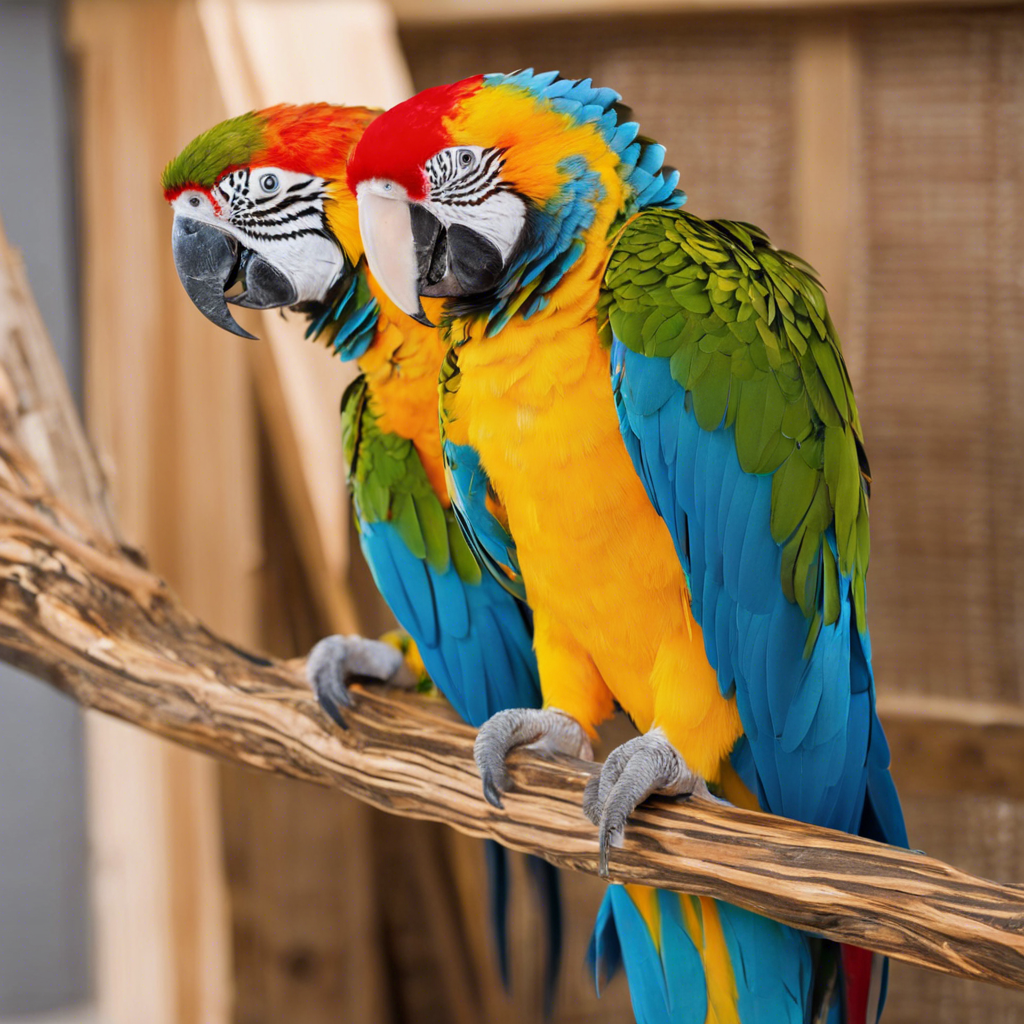Parrots are intelligent, colorful, and charismatic birds that make wonderful companions. If you’re considering bringing a parrot into your home or have recently welcomed one, you’re in for a delightful and rewarding experience. However, parrot ownership comes with unique challenges, and it’s essential to be well-prepared to ensure a happy and healthy life for these beautiful birds. Here are some valuable tips to guide you through the journey of raising parrots.
**Choosing the Right Parrot Species:**
The parrot family is diverse, including different species with varying personalities and care requirements. Before bringing a parrot home, research various species to find one that aligns with your lifestyle and expectations. Consider factors such as size, noise level, talking ability, and the amount of attention they need. Larger parrots like Macaws and African Greys are highly intelligent and require ample stimulation, while smaller species like Budgerigars or Cockatiels can be more manageable for beginners.
**Create a Comfortable Environment:**
Parrots thrive in a spacious and stimulating environment. Provide them with a large cage that allows room for flight and play, equipped with perches of varying diameters for foot exercise. Ensure the cage is placed in a lively part of your home but away from drafty areas and direct sunlight. Decorate the cage with parrot-safe toys, swings, and foraging devices to keep them mentally engaged and entertained.
**Nutrition is Key:**
A balanced diet is crucial to your parrot’s health and longevity. In the wild, parrots feed on a diverse range of foods. Replicate this in captivity by offering a mix of high-quality pellets, fresh fruits, vegetables, and grains. Avoid processed foods, chocolate, caffeine, and avocado, as these can be toxic to parrots. Regularly provide fresh water for drinking and bathing, ensuring it is changed daily.
**Socialization and Bonding:**
Parrots are highly social creatures and require plenty of interaction. Spend time with your parrot daily, talking gently and encouraging them to mimic words or phrases. Teach them simple tricks using positive reinforcement techniques, such as clicker training. Parrots also enjoy physical affection, so offer scratches and gentle petting when they are receptive. Build trust gradually and respect their boundaries.
**Health and Veterinary Care:**
Regular veterinary check-ups are essential to maintaining your parrot’s health. Find an avian veterinarian in your area and schedule routine visits for check-ups and vaccinations. Be vigilant for signs of illness, such as changes in appetite, behavior, or droppings, and seek veterinary care promptly if concerns arise.

